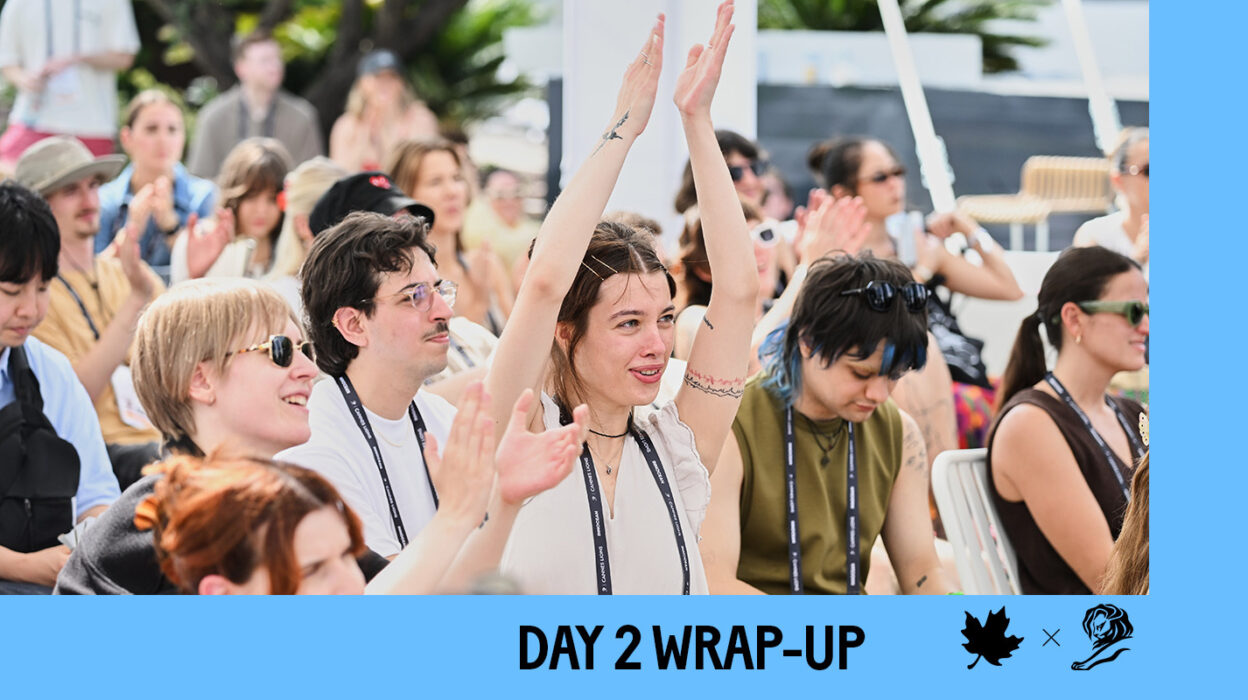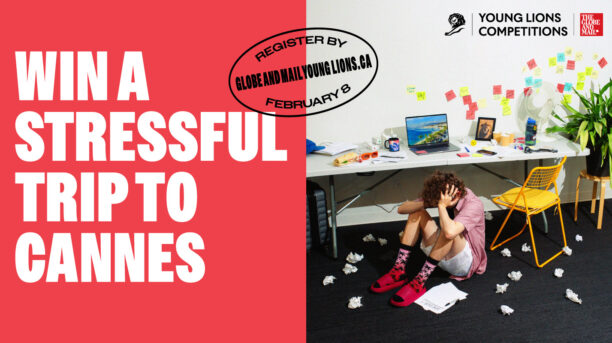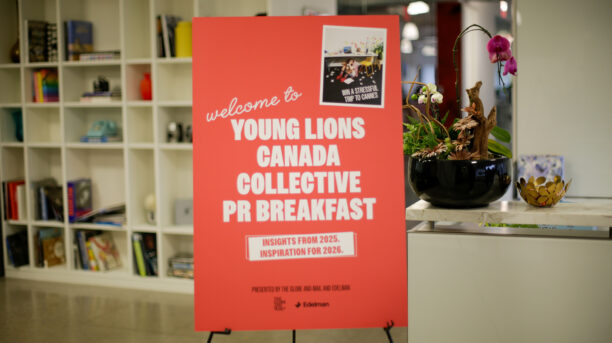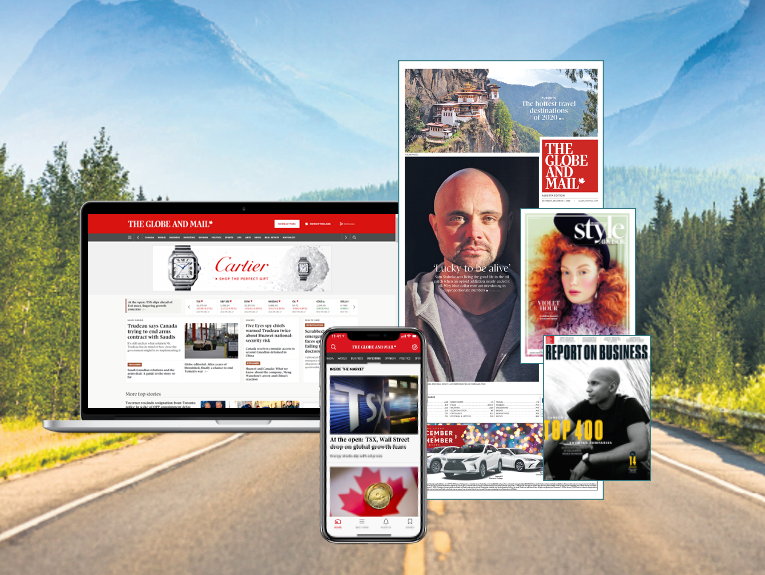Day two at the Cannes Lions Festival of Creativity and the focus on AI continued with the conversations gaining even more depth and dimension. As speakers and thought leaders took the stage, the dialogue shifted from hype to nuance – exploring how AI is reshaping creativity and redefining its role in the future of advertising.
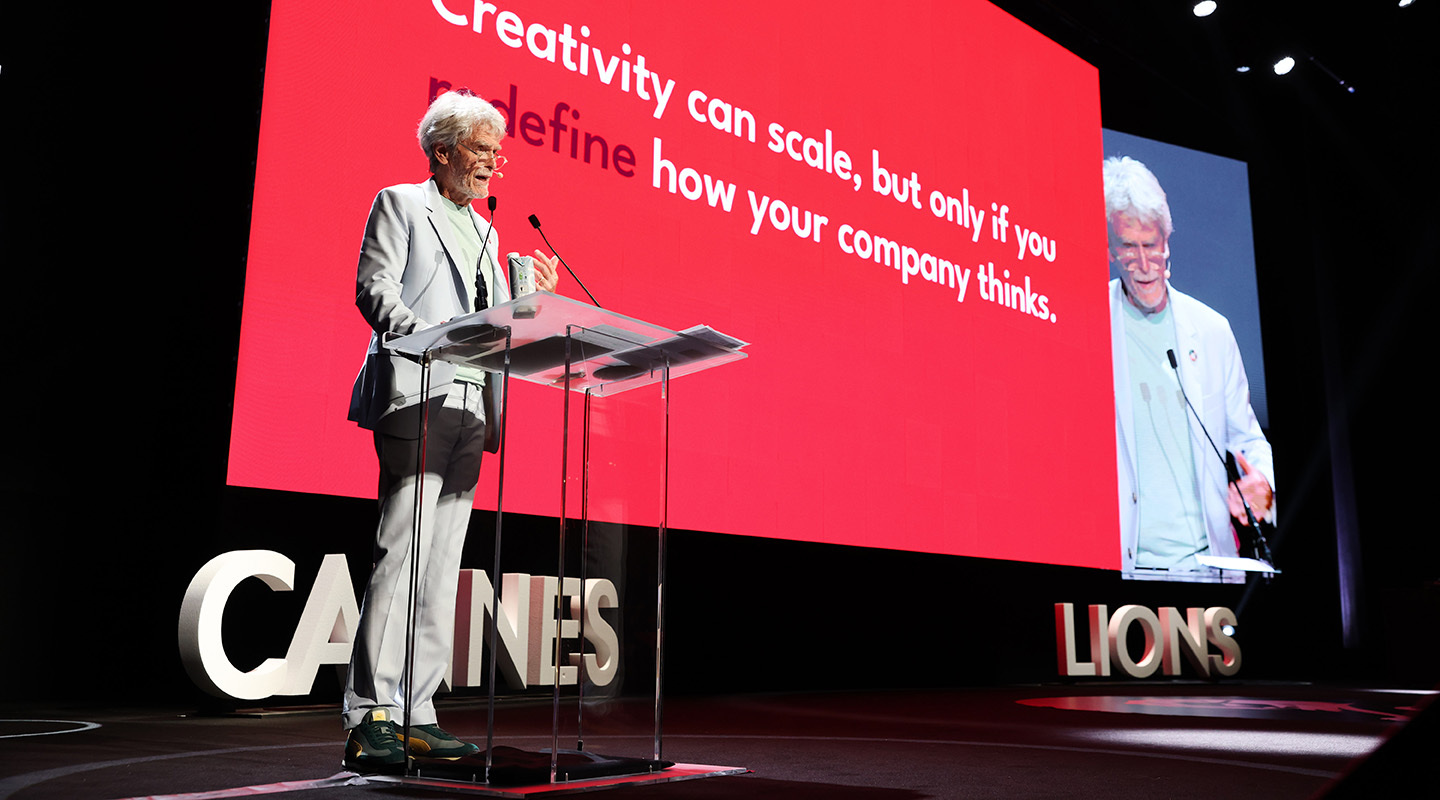
The Business of Creativity | Adapt or Die: Why Giants Can’t Dance – Sir John Hegarty
I’m a champion of John Hegarty’s optimism-fueled take on AI, saying that “AI offers the democratization of opportunity to all”. He posits that it creates an equal playing field for the independent agencies that are constantly fighting for a foothold. He’s right.
But some are calling this year’s festival the “Cannes of Reckoning”. The big question is not whether clients will replace human creativity with AI, but what it will mean to agencies as a whole.
With infinite and free intelligence comes chaos. No doubt. But only 12% of the Cannes submissions this year reportedly used AI. And I’ve seen the depth and strength it can add to ideas – ideas from humans.
But this year I can’t help but glance over my shoulder.
Reporting Karen Howe, President, The Township Group, Cannes Lions Advisory Board member
Regarded as an authority on global trends in culture, tech and creativity, Karen speaks to audiences across North America providing a vital analysis of these key trends. She is a globally recognized Creative Director and a Cannes Lions Advisory Board member who trains Canada’s Young Lions and Judges for competition. Karen is also a rarity as a female creative director in an industry where fewer than 10% are women. Count on her for a unique point of view. Follow her on X @realkarenhowe
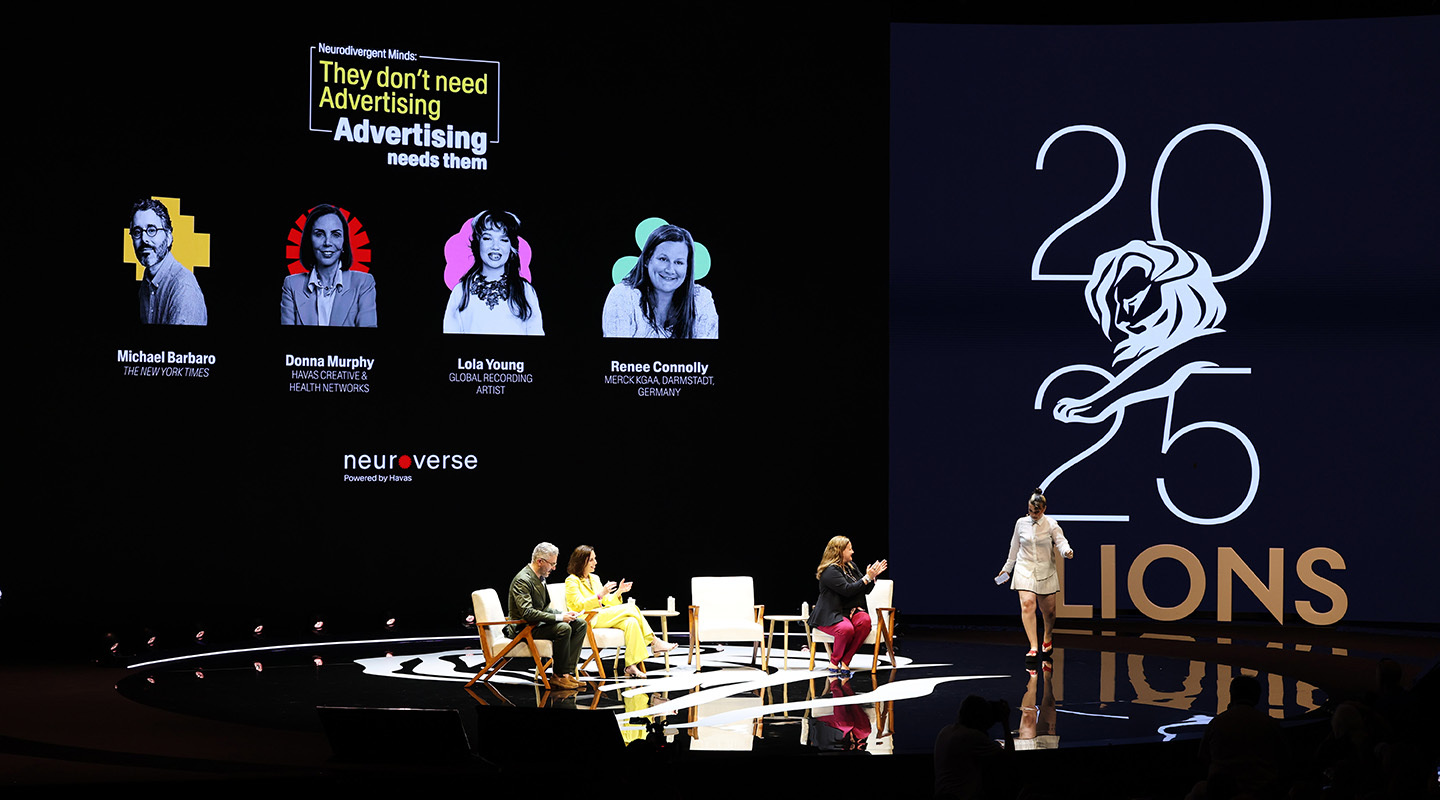
HAVAS | Neurodivergent Minds: They Don’t Need Advertising – Advertising Needs Them
Amidst the AI buzz throughout the La Croisette another conversation started to rise above the noise — not because it was the loudest, but its clarity. Neurodiversity, long sidelined as a topic of inclusion, took center stage today and it’s clear it needs to return to the boardroom as a strategic imperative. In a world increasingly defined by automation and uniformity, originality has become a premium and valued asset — and those best equipped to deliver it often don’t think in straight lines.
It was Neurodiversity Pride Day and a standout panel featuring Donna Murphy (Global CEO, Havas Creative and Health Networks), Lola Young (Global Recording Artist, Island Records), and Renee Connolly (Chief Belonging Officer and SVP, Life Science Communications and Branding at Merck KGaA, Darmstadt, Germany) brought this truth into sharp focus. What emerged was not a conversation about accommodation, but about creative acceleration, structural redesign, and competitive advantage.
Lola Young opened with a deeply personal reflection on receiving a late diagnosis – and the dissonance of moving through a world designed for different cognitive defaults. Reciting a poem she wrote for the occasion, Young gave voice to the often-invisible emotional labour of masking, conforming, and translating oneself to meet expectations. Her art, she explained, isn’t just self-expression – it’s a tool for survival.
Donna Murphy approached the topic with business acumen and urgency. Sharing the story behind Creative Spirit, a program that places neurodivergent individuals in employment, she cited data and case studies that proved the point: campaigns co-created with neurodivergent talent are not just inclusive – they’re more effective. One reached 24 million views in an hour and lifted awareness by 17%, not because it was perfectly optimized, but because it was emotionally precise and authentically made.
Renee Connolly spoke to the internal architecture required to support real inclusion. At Merck, her work spans policy, infrastructure, and culture – from Employment Resource Groups to expanded caregiver leave. Her central thesis: neurodiversity is not a challenge to be managed, but an opportunity to expand how we think, build, and lead.
Collectively, these leaders painted a picture of what’s next: a world where difference isn’t tolerated – it’s systemically enabled. Where creativity is no longer defined by neat timelines or linear logic, but by unexpected insights and adaptive brilliance.
In an era where AI can execute flawlessly but feel nothing, the differentiator is no longer efficiency – it’s humanity. And the future will belong to those bold enough to design with, not around, neurodivergent minds.
De-Shittification: Rebuilding Brands in an Age of Fragmentation and Forgotten Experience
One of my favourite themes emerging from today’s discussions on day one of Cannes Lions 2025 was the deep dive into a relatively new industry buzzword – and, arguably, a necessary rallying cry: de-shittification.
It drew laughs when said on stage, but the sentiment behind it couldn’t be more serious. Our industry is facing a reckoning. We’ve optimized for everything – reach, efficiency, performance – but somehow made the customer experience worse. Satisfaction is down. Loyalty is crumbling. And it only takes one bad moment for 1 in 3 people to abandon a brand they once loved.an era where AI can execute flawlessly but feel nothing, the differentiator is no longer efficiency – it’s humanity. And the future will belong to those bold enough to design with, not around, neurodivergent minds.
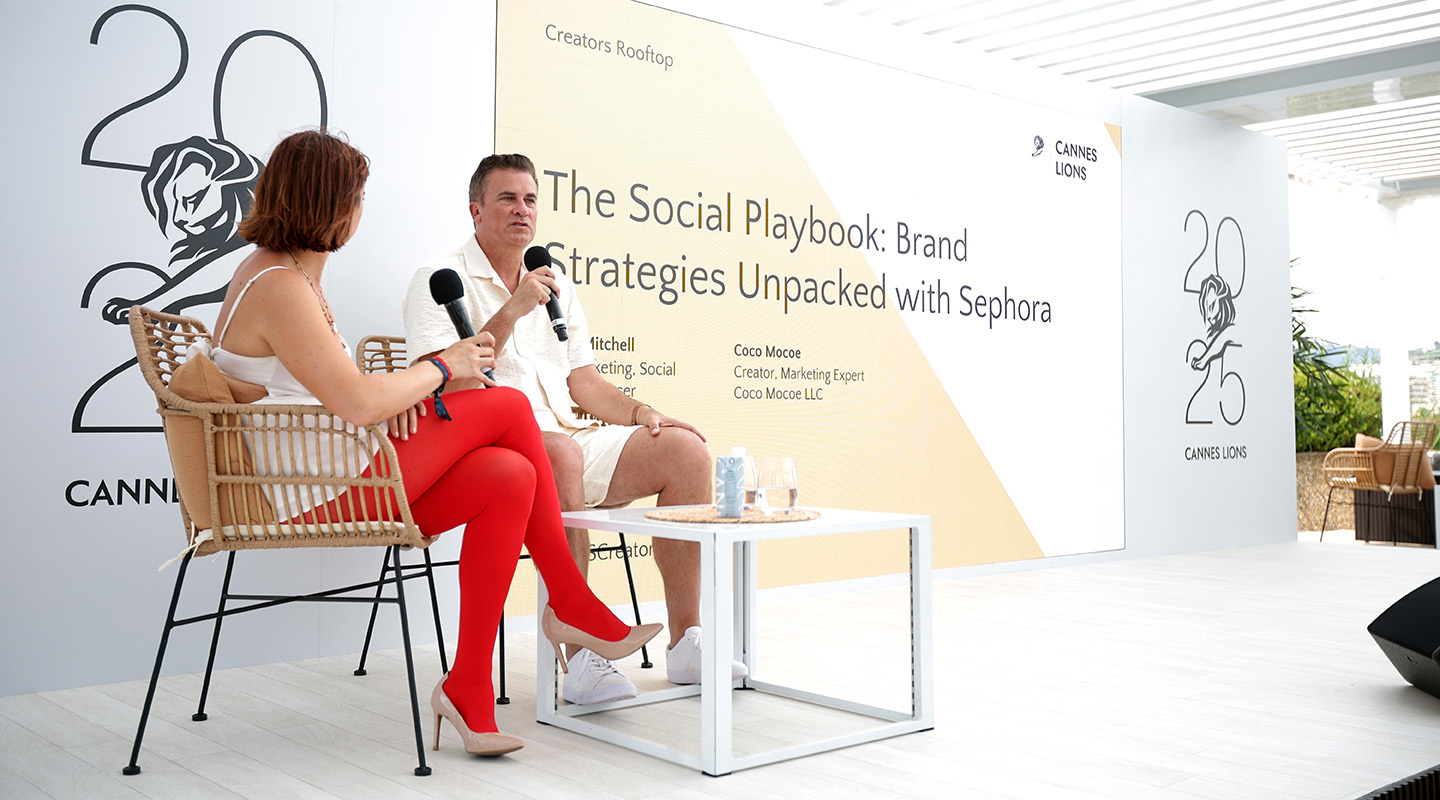
R/GA and Sephora | Unshittifying CX: Reconnecting Funnels and Feelings
But as the day’s talks unfolded, it became clear: poor CX isn’t the root problem. It’s a symptom of a larger collapse – one that spans strategy, structure, and execution. The real issue? We’ve disconnected the brand from the experience. And we’ve done it at scale.
The most explicit articulation of this came from Yael Cesarkas (SVP, Executive Strategy Director, R/GA) and Brent Mitchell (VP, Marketing, Social and Influencer, Sephora), who warned that most marketers still control less than 25% of the customer journey. The result? A fragmented experience that feels nothing like the brand we think we’re building.
Mitchell spoke to how Sephora has resisted this by embedding its brand into every touchpoint – from loyalty programs that drive 95% of purchases to social content that reflects real, in-store energy. It’s not just “better CX.” It’s coherent brand-building. And while the industry’s scores drop, Sephora’s are climbing – because they treat experience as a creative asset, not a cost centre.
That message was perfectly reinforced in a separate – but spiritually aligned – session from Contagious and WARC, where Sunil Bajaj and Paul Stringer framed the issue from the top down. Brands today aren’t just poorly executed – they’re structurally fragmented. Campaigns are stretched thin across formats and platforms without a consistent, elevated idea to anchor them. Worse still, content production is accelerating, while meaning is evaporating.
Their antidote? Stop building campaigns. Start building communications platforms. These are not taglines or moments – they’re structured systems that can be atomized intelligently across the ecosystem. They travel. They adapt. They stay intact.
Together, these talks made something click: we don’t just need to de-shittify CX. We need to de-shittify the entire marketing operating system.
We need to:
- Treat every touchpoint as brand-building – not just the big, shiny ones.
- Elevate ideas to platform-level thinking – so they can stretch without snapping.
- Reconnect teams, tools, and touchpoints so that the brand experience actually lives where customers experience it.
It’s not about adding more tech, more formats, or more assets. It’s about restoring coherence – to the work, to the systems behind it, and to the reason we do it in the first place.
De-shittification, then, is more than a punchline. It’s a mandate. To move from fragmentation to integration. From reactive marketing to intentional experience. And from brand dissonance to brand truth.
Because in a world of infinite impressions, what people feel – and remember – will be the only thing that matters.
Reporting Sonia Carreno, President, IAB Canada, Cannes Lions Advisory Board member
As acting President of IAB – the only trade association dedicated to the responsible growth of the digital industry in Canada – Sonia is a true digital veteran with deep experience covering virtually every angle of the digital marketing sector. Her recent induction into Canada’s Marketing, Advertising, PR and Communications Hall of Fame is just one of many awards she has collected, including two gold medals for her work supporting gender equality in the Canadian marketplace for IAB’s AutoCorrectHer campaign. As an active member of the advertising community, she is deeply committed to the industry’s success, with a focus on ethical and responsible practices to build a sustainable future.
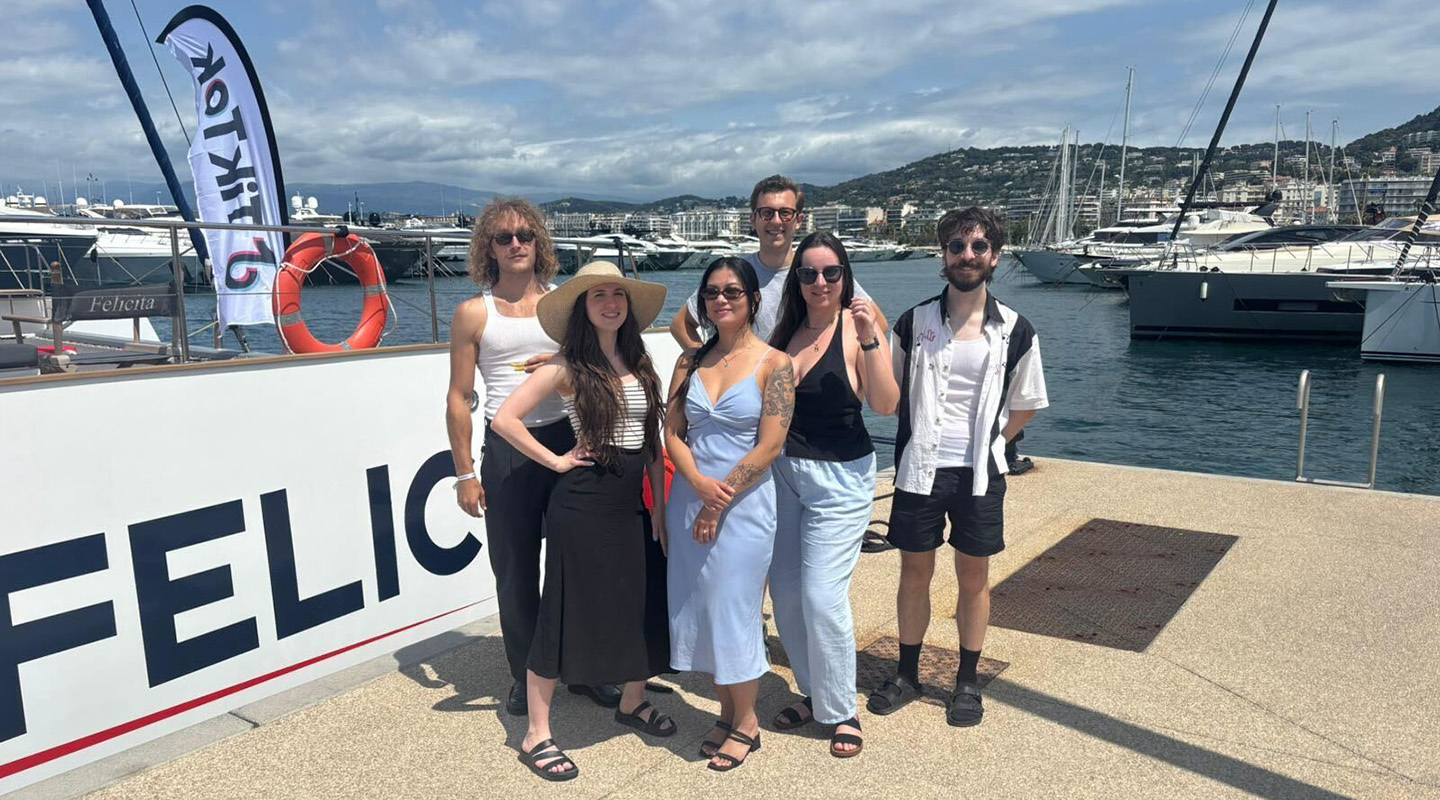
Young Lions competition teammates: Design: Jesse Shaw, Zoë Boudreau; Digital: Anna Ira, Elyssa Biringer; Print: Laurent Tremblay, Victor Pierre
The 2025 Global Young Lions Competitions continued today, as creative contenders tackled briefs in Design, Digital, and Print. Pictured here: Canada’s rising Young Lions talent, gearing up for their intense 24-hour sprints – going head-to-head against some of the most creative competitors from around the world. Best of luck to all our Young Lions competitors!
A Sweet Win: THE LAST TIMBIT Brings Home Bronze for GUT
The first winners of Cannes Lions 2025 are in. GUT has clinched a Bronze in Entertainment Lions for Music – Use of Original Composition for their entry, THE LAST TIMBIT. Click below to listen to the music that brought this now award-winning creative musical performance to life.
IG: @GlobeMediaGroup
X: @CannesLionsCAN
Hashtag: @CannesLions2025
LinkedIn: www.linkedin.com/company/globemediagroup

